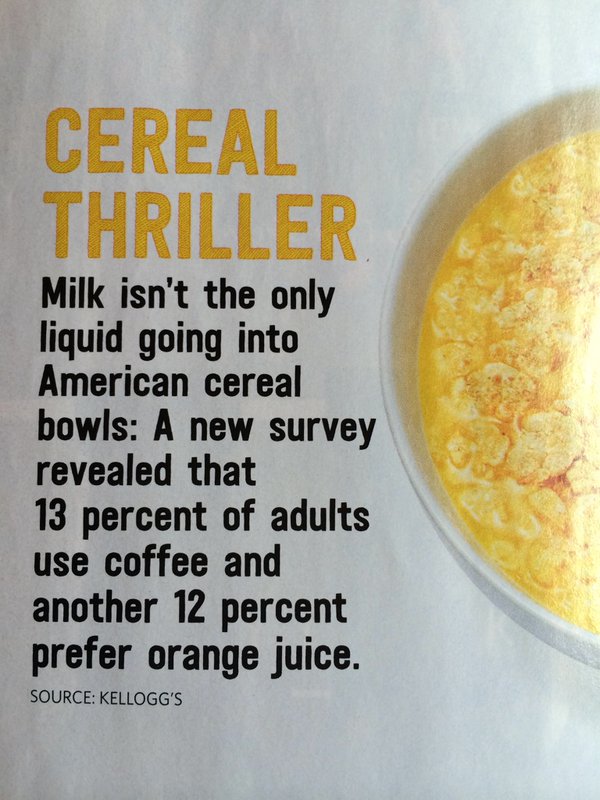Zombie bogus surveys
From Food Network magazine, via Twitter, via Julie Blommaert
There’s no more detail than “Kellogg’s” as the source, and the Kellogg’s website is very sensibly not admitting to anything.
Some more Google finds two stories from September last year — getting the factoid into a real paper magazine, because of the publication time lag, gives it another chance to roam the earth looking for brains.
Even though it has to be the same survey, the story from Vice says “a full one-fifth of Americans are using orange juice in their cereal instead of milk,” though Bustle says “More than 10 percent of Americans admitted to using orange juice or coffee”. It’s not just that the numbers are inconsistent, the phrasing in one case suggests “do you usually?” as the question, the other “have you ever?” It matters, or at least it would if anything about this mattered.
We’re also not told whether these are really supposed to be proportions of “Americans” or of “Americans who eat cereal”, or “Americans who eat cereal for breakfast”, or whatever.
Usefully, the Vice story does give a bit more detail about the survey
Two thousand US consumers and college students from all over the country participated in the study, with about 30 percent male subjects and 70 percent female. The participants were of all ages, with half being college students and the rest varied (14 percent between the ages of 25 and 34 years old, 16 percent between 35 and 44 years old, about a quarter between 45 and 54 years old, and the rest scattered in older or younger age groups).
They don’t say how the participants were recruited or surveyed, but there’s enough information there to make it clear the data would be meaningless even if we knew what the questions were and what percentages the survey actually found.
Thomas Lumley (@tslumley) is Professor of Biostatistics at the University of Auckland. His research interests include semiparametric models, survey sampling, statistical computing, foundations of statistics, and whatever methodological problems his medical collaborators come up with. He also blogs at Biased and Inefficient See all posts by Thomas Lumley »
